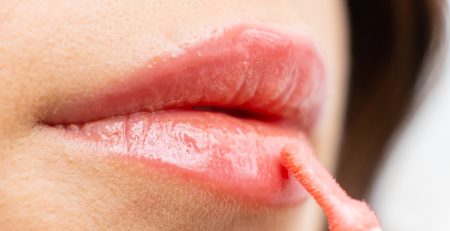Posted by:
Category:
Comments:
Post Date:
What Causes Cold Sores?
🔹 Primary Cause: HSV-1 Infection
-
Transmission: HSV-1 is typically spread through direct contact with infected skin or saliva (e.g., kissing, sharing utensils, razors, or lip balm).
-
Latency: After the initial infection (which may or may not cause noticeable symptoms), the virus becomes dormant in nerve cells, usually around the face.
-
Reactivation: At times, the virus reactivates, traveling back down the nerve to the skin, where it causes a cold sore.
🔹 Common Triggers That Reactivate HSV-1
Cold sores don't appear randomly—they're often triggered by specific stressors that weaken the immune system:
-
Emotional or Physical Stress
-
Illnesses or Fevers (“fever blisters” is another name for cold sores)
-
Fatigue or Lack of Sleep
-
Sunlight or UV Exposure (especially on the lips)
-
Hormonal Changes (e.g., menstruation)
-
Injury or Irritation to the lips or mouth (like dental work)
-
Weakened Immune System (from medications or medical conditions)
🔹 Key Facts About HSV-1
-
It’s lifelong: Once infected, the virus stays in your body.
-
Contagious: Most contagious during an active outbreak (blisters or scabs), but it can also be spread when no sores are visible (asymptomatic shedding).
-
Manageable: While there's no cure, antiviral medications (like acyclovir or valacyclovir) and stress management can reduce frequency and severity.
Additional Useful Information
What Are Cold Sore Causes?
Essentially, cold sores are a strain of the herpes simplex virus, HSV-1. Surprisingly, estimates are that over 80% of the population in North America carries the herpes virus, though inactive. Many factors determine if the virus will remain dormant in a person or if it will be active. Another aspect of cold sores is to know the difference between a cold sore vs a pimple on lip.Where Do Cold Sores Come From?
The herpes simplex virus usually enters the body through a break or opening in the skin around or inside the mouth. The virus is spread when a person comes in contact with a cold sore or infected fluid, such as saliva or physical contact. Sometimes parents can spread cold sores to their children in this way inadvertently.Frequency of Cold Sores
Cold sore outbreaks vary significantly from person to person. While one individual may only have one cold sore outbreak a year, others might have more than one cold sore a month (see cold sore canker difference). It depends on many factors, including specific triggers, diet & lifestyle, sexual health, immune system strength, and so on. Specific Triggers of Cold Sores Can Include:- Cold and Warm Weather
- Fatigue
- Other illnesses, such as cold or fever
- Hormones
- Mental or Physical Stress
- Irritation of the Lips






